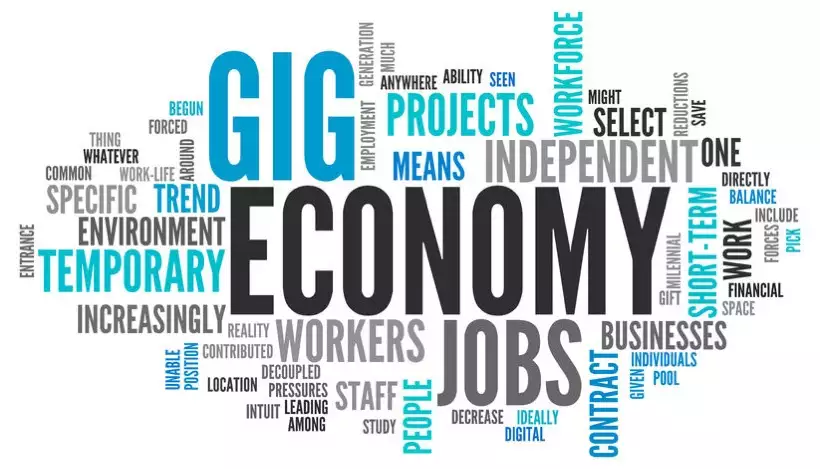
In recent years, a seismic shift has reshaped the global job market, giving birth to the “gig economy.” This phenomenon refers to a labor market characterized by short-term or freelance work arrangements, where individuals offer their skills and services on a temporary basis to various employers or clients. The gig economy has gained momentum due to technological advancements, increased connectivity, and changing attitudes toward work, offering both opportunities and challenges for workers and traditional employment models.
The rise of the gig economy can be attributed to several factors. Digital platforms and online marketplaces have revolutionized the way businesses connect with freelancers, while workers can now easily find gigs aligned with their expertise. This shift has granted workers the freedom to choose when, where, and how they work, blurring the boundaries between work and personal life.
One of the most appealing aspects of the gig economy is its flexibility. Freelancers have the liberty to create their own schedules, enabling them to achieve a better work-life balance. This aspect is especially attractive to parents, students, and individuals seeking greater work-life integration. Moreover, gig workers often have the opportunity to work on multiple projects simultaneously, diversifying their income sources and reducing reliance on a single employer. This diverse income stream offers financial security and stability, despite the unpredictable nature of gig work.
Another crucial facet of the gig economy is the autonomy and entrepreneurship it offers. Freelancers function as independent contractors or entrepreneurs, making decisions about the type of work they take on, setting their rates, and choosing their clients. This level of control over their careers allows them to pursue projects they are passionate about, fostering personal and professional growth.
Furthermore, freelancing exposes workers to diverse projects and industries, providing them with opportunities to acquire new skills and build a diverse portfolio. The exposure gained from such experiences can open doors to new career opportunities, enhancing their employability and marketability.
Despite the allure of the gig economy, it presents challenges to traditional employment models. Job insecurity is one such concern, as freelancers lack the stability associated with traditional employment, leaving them vulnerable to fluctuations in demand and income uncertainty. Additionally, freelancers often miss out on employee benefits such as health insurance, retirement plans, and paid time off, which places the responsibility of securing their financial future on individuals.
The irregular nature of gig work also leads to income instability, making budgeting and financial planning more challenging for freelancers. Moreover, gig workers often fall outside traditional labor regulations, raising concerns about their access to labor rights, fair pay, and workplace protections.
Nonetheless, the gig economy has made a significant impact on the workforce and how businesses operate. More individuals are choosing freelance work over traditional employment, resulting in a rise in the contingent workforce and a decrease in full-time employees. Companies are increasingly turning to freelancers for specialized projects, allowing them to access a broader pool of talent without incurring long-term overhead costs associated with hiring full-time employees.
Moreover, the gig economy has influenced employee expectations, with some seeking flexible work arrangements and remote opportunities. As a result, traditional employers must adapt their offerings to attract and retain talent in this evolving work landscape.
As the gig economy continues to grow, it is imperative that policymakers, businesses, and workers collaborate to address these challenges and develop innovative solutions to ensure that both traditional and gig workers can thrive in the modern world of work.
Finding a balance between the advantages of freelancing and the security of traditional employment will be critical in shaping a sustainable and equitable future for the workforce.


